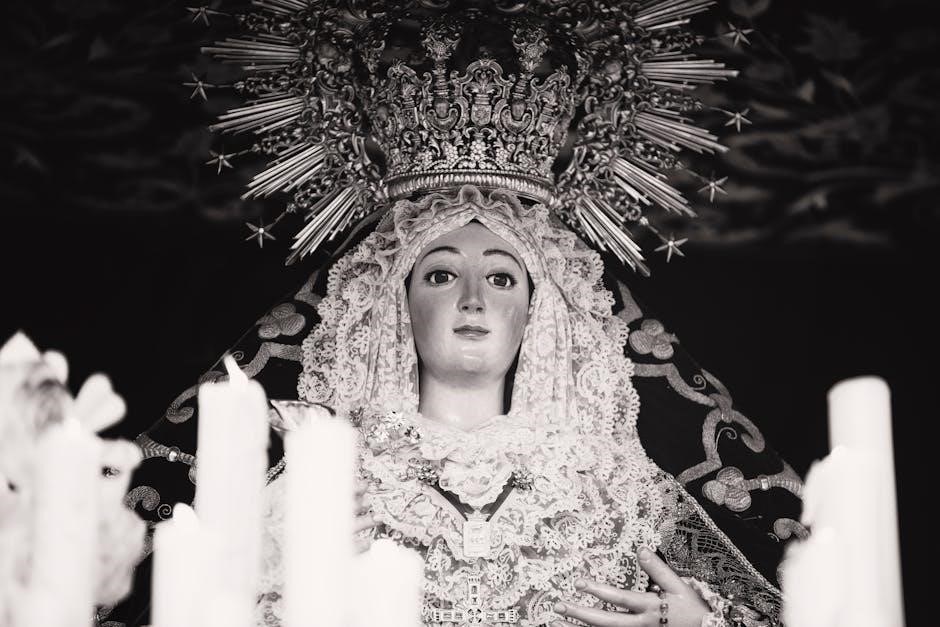The Vanderbilt Baseball Workout Program is a renowned training regimen designed to enhance strength‚ speed‚ and agility‚ preparing players for the demands of competitive baseball while prioritizing injury prevention and team success.
1.1 Overview of the Program’s Importance
The Vanderbilt Baseball Workout Program is a cornerstone of the team’s success‚ emphasizing a balanced approach to physical and mental development. It prepares players for the rigors of the season by enhancing strength‚ speed‚ and agility while minimizing injury risks. The program’s structured regimen fosters discipline‚ resilience‚ and teamwork‚ creating a culture of excellence. Its comprehensive design addresses the unique demands of baseball‚ ensuring athletes are well-prepared for competition. As a model for collegiate programs nationwide‚ it underscores the importance of holistic training in achieving peak performance and sustaining long-term success in the sport.
1.2 Key Components of the Workout Plan
The Vanderbilt Baseball Workout Plan integrates strength training‚ conditioning‚ and flexibility exercises tailored to baseball-specific demands. It includes leg‚ core‚ and upper body workouts‚ along with agility drills and plyometrics to build power and endurance. The program emphasizes injury prevention through mobility and stretching routines. Personalized plans address individual player needs‚ fostering a balanced approach to athletic development. This structured yet adaptable system ensures athletes are physically and mentally prepared for competition‚ aligning with the program’s goal of maximizing performance and team success.

Strength Training in the Vanderbilt Program
The program emphasizes rigorous strength training to build muscle mass‚ power‚ and endurance‚ focusing on legs‚ core‚ and upper body to maximize performance in baseball.
2.1 Focus on Muscle Groups: Legs‚ Core‚ and Upper Body
The Vanderbilt program targets legs for power‚ core for stability‚ and upper body for strength. Leg exercises like squats and deadlifts enhance explosiveness‚ while core work improves balance. Upper body training includes bench presses and rows to boost throwing velocity and batting power. These muscle groups are essential for generating force and maintaining durability‚ ensuring players excel in hitting‚ fielding‚ and pitching. The program’s balanced approach to these areas is key to overall performance and injury prevention‚ making it a cornerstone of Vanderbilt’s success in developing elite athletes.
2.2 Key Exercises for Power and Endurance
The Vanderbilt program incorporates exercises like plyometrics‚ sprints‚ and weighted ball throws to build explosive power. Endurance is enhanced through interval training‚ long-distance runs‚ and shuttle drills. These exercises simulate game-specific movements‚ improving speed and stamina. Players also engage in resistance band work and medicine ball exercises to boost rotational strength‚ crucial for batting and pitching. The combination of power and endurance training ensures athletes can sustain high-intensity efforts over the course of a game and throughout the season‚ giving them a competitive edge on the field.

Conditioning and Agility Drills
The program emphasizes drills like sprints‚ plyometrics‚ and ladder exercises to enhance speed‚ agility‚ and explosiveness‚ ensuring players can quickly react and move efficiently during games.
3.1 Importance of Speed and Explosiveness
Speed and explosiveness are critical for baseball success‚ enabling quick reactions‚ sharp movements‚ and powerful plays. Vanderbilt’s program prioritizes these traits through targeted drills like sprints and plyometrics‚ enhancing players’ ability to accelerate rapidly and generate force for hitting‚ throwing‚ and base running. By improving speed‚ players can cover more ground defensively and capitalize on scoring opportunities. Explosiveness‚ meanwhile‚ is essential for generating bat speed‚ throwing velocity‚ and overall athletic performance. These components are integral to the program‚ ensuring athletes can excel in the fast-paced‚ high-intensity nature of competitive baseball. The focus on speed and explosiveness sets Vanderbilt’s program apart‚ fostering elite-level athleticism.
3.2 Agility Training Methods
Agility training is a cornerstone of the Vanderbilt Baseball Workout Program‚ focusing on enhancing quickness‚ balance‚ and reaction time. Players engage in ladder drills‚ cone exercises‚ and shuttle runs to improve their ability to change direction rapidly and maintain stability. These drills mimic the sharp movements required in baseball‚ such as fielding ground balls or rounding bases. The program also incorporates dynamic exercises like zigzag runs and box jumps to boost coordination and explosiveness. By refining their agility‚ players gain a competitive edge‚ enabling them to react faster and execute plays with precision. Agility training is tailored to each player’s position‚ ensuring optimal performance in game-specific situations.

Flexibility and Mobility Exercises
Flexibility and mobility exercises are vital for improving range of motion‚ reducing stiffness‚ and preventing injuries. Players focus on stretching routines for shoulders‚ hips‚ and lower back‚ enhancing performance and durability.
4.1 Stretching Routines for Injury Prevention
The Vanderbilt program emphasizes structured stretching routines to enhance flexibility and reduce injury risk. Players focus on dynamic and static stretches targeting shoulders‚ hips‚ and lower back. These exercises improve range of motion‚ prevent muscle strains‚ and promote recovery. Consistency in stretching routines is stressed to maintain joint health and muscular balance. The program also incorporates mobility drills to address specific baseball movements‚ ensuring players can perform at peak levels while minimizing the likelihood of injuries. Proper form and technique are prioritized to maximize the effectiveness of each stretch and maintain overall physical resilience.
4.2 Mobility Work for Enhanced Performance
Mobility exercises are integral to Vanderbilt’s program‚ focusing on enhancing joint range and muscle function. Players engage in dynamic movements like arm circles‚ leg swings‚ and hip mobilizations to improve flexibility and coordination. These drills mimic baseball-specific actions‚ ensuring better performance in tasks such as pitching and fielding. Mobility work also reduces stiffness and enhances recovery‚ allowing players to maintain peak physical condition throughout the season. By prioritizing mobility‚ the program ensures athletes can execute complex movements with precision and power‚ contributing to overall team success and longevity in the sport.

Fall Workout Schedule and Team Bonding
The fall workout period is crucial for skill development‚ physical preparation‚ and fostering camaraderie among players‚ laying a strong foundation for the upcoming season.
5.1 Structure of the Fall Training Period
The fall training period typically begins in late August or early September‚ focusing on building a strong foundation for the upcoming season. Workouts include strength and conditioning sessions‚ individual and team drills‚ and scrimmages. This phase emphasizes skill refinement‚ team bonding‚ and physical preparation. Players engage in intrasquad games to gain competitive experience and showcase their abilities. The fall schedule balances recovery from the previous season with gradual intensification of training. Coaches evaluate player progress and build team chemistry‚ ensuring everyone is ready for the spring season’s demands. This structured approach is vital for Vanderbilt’s success‚ fostering unity and readiness among the team.
5.2 Role of Intramural Games
Intramural games play a pivotal role in the Vanderbilt Baseball Workout Program‚ offering players competitive experience within the team. These games simulate real-game scenarios‚ allowing players to apply skills learned in training. Coaches use these games to evaluate player progress‚ identify strengths‚ and pinpoint areas for improvement. Intramurals also foster team chemistry‚ as players collaborate and compete against each other. By providing a platform for players to earn a spot on the starting roster‚ these games motivate athletes to perform at their best. They are a crucial component of the fall training period‚ preparing the team for the challenges of the upcoming season.

Injury Prevention Strategies
The program emphasizes a comprehensive approach to injury prevention‚ integrating strength training‚ flexibility exercises‚ and proper techniques to minimize risks and enhance overall performance.
6.1 Comprehensive Approach to Reducing Injuries
The Vanderbilt Baseball Workout Program incorporates a holistic approach to injury prevention‚ balancing strength training‚ flexibility‚ and proper technique. By addressing muscle imbalances and enhancing mobility‚ the program reduces the risk of common baseball injuries. Personalized workout plans are tailored to each player’s needs‚ focusing on injury prevention strategies. This includes exercises that strengthen key areas like the shoulders‚ elbows‚ and lower body‚ which are prone to strain in baseball. The program emphasizes proper form and recovery‚ guided by expert strength and conditioning coaches. This comprehensive method minimizes injury risks while optimizing performance‚ ensuring players stay healthy and competitive throughout the season.
6;2 Role of Strength Training in Injury Prevention
Strength training plays a pivotal role in injury prevention within the Vanderbilt Baseball Workout Program. By targeting key muscle groups such as the legs‚ core‚ and upper body‚ players build resilience against common injuries. Exercises like squats‚ deadlifts‚ and plyometrics strengthen the lower body‚ reducing the risk of hamstring and knee injuries. Core work enhances stability‚ crucial for preventing oblique strains. Upper body exercises‚ including shoulder stabilization drills‚ protect against arm and shoulder injuries prevalent in baseball. This structured approach ensures players develop balanced strength‚ minimizing vulnerability to injuries and maintaining peak performance throughout the season.

Offseason Training and Recovery
The Vanderbilt Baseball Workout Program emphasizes a balance between rest and intense workouts during the offseason‚ focusing on skill refinement and physical preparation to ensure players are ready for the upcoming season.
7.1 Balance Between Rest and Intense Workouts
The Vanderbilt Baseball Workout Program prioritizes a balanced approach during the offseason‚ combining intense workouts with adequate rest to optimize recovery and performance. Players engage in structured strength training‚ plyometrics‚ and agility drills‚ while incorporating rest periods to avoid overtraining. This balance ensures physical and mental rejuvenation‚ preventing injuries and enhancing overall readiness for the upcoming season. The program emphasizes the importance of recovery to maintain peak performance levels throughout the year. By integrating rest with rigorous training‚ Vanderbilt ensures players return stronger and more prepared for the demands of competitive baseball.
7.2 Skill Development During the Offseason
The Vanderbilt Baseball Workout Program places a strong emphasis on skill development during the offseason‚ ensuring players refine their techniques and address specific areas for improvement. Players engage in personalized skill-specific workouts tailored to their positions‚ such as batting‚ pitching‚ and fielding. The program incorporates baseball-specific drills to enhance precision and execution‚ while video analysis and coaching feedback provide valuable insights for growth. Small group sessions foster a competitive yet supportive environment‚ allowing players to test their skills in game-like scenarios. This structured approach ensures continuous improvement‚ preparing athletes to excel when the season begins and maintaining Vanderbilt’s competitive edge in college baseball.

Mental Toughness and Discipline
Mental toughness and discipline are cornerstone values in the Vanderbilt Baseball Workout Program‚ fostering resilience‚ focus‚ and determination among players to excel both on and off the field.
8.1 Building Mental Resilience
Mental resilience is cultivated through structured exercises and team activities within the Vanderbilt Baseball Workout Program. These exercises include mindfulness practices‚ visualization techniques‚ and stress management strategies to enhance focus and emotional stability. Players are taught to embrace challenges as opportunities for growth‚ fostering a mindset that thrives under pressure. The program emphasizes the importance of self-awareness and self-regulation‚ enabling athletes to maintain composure during high-stakes moments; By integrating these mental strategies‚ players develop the resilience needed to overcome setbacks and perform consistently at their best‚ both on and off the field.
8.2 Role of Leadership in Team Success
Leadership plays a pivotal role in the Vanderbilt Baseball Workout Program‚ fostering a culture of accountability and unity. Team leaders set the tone by exemplifying discipline‚ work ethic‚ and resilience‚ inspiring others to follow suit. Effective leaders communicate clearly‚ motivate teammates‚ and make decisions that benefit the group. The program emphasizes developing leaders who can guide the team through challenges‚ both on and off the field. Strong leadership enhances collaboration‚ boosts morale‚ and drives the team toward common goals. By cultivating leadership skills‚ the program ensures that players are prepared to contribute to the team’s success and uphold Vanderbilt’s winning tradition.

Success Stories and Notable Players
Vanderbilt’s program has produced standout players like Dansby Swanson and Walker Buehler‚ showcasing its impact on developing talent for professional baseball and collegiate success.
9.1 Impact of the Program on Player Development
The Vanderbilt Baseball Workout Program has proven instrumental in transforming athletes into elite players‚ fostering physical and mental growth. By emphasizing balanced conditioning‚ strength‚ and agility‚ the program equips players with the tools to excel at higher levels. Its structured approach ensures consistent improvement‚ preparing athletes for the rigors of collegiate and professional baseball. The program’s focus on individualized training and injury prevention has enabled players to maximize their potential‚ leading to standout performances and contributing to Vanderbilt’s reputation as a powerhouse in college baseball. This comprehensive development strategy has been key to producing successful athletes.
9.2 Alumni Success in Professional Baseball
Vanderbilt’s Baseball Workout Program has consistently produced athletes who excel in professional baseball. Alumni like Dansby Swanson and Walker Buehler have transitioned seamlessly into MLB‚ showcasing the program’s effectiveness. The rigorous training emphasizes strength‚ agility‚ and mental toughness‚ equipping players for the demands of professional baseball. Vanderbilt’s focus on holistic development ensures alumni not only succeed but also maintain longevity in their careers. The program’s reputation for producing skilled‚ resilient players has solidified its legacy‚ making it a model for aspiring athletes aiming to reach the highest levels of the sport.

Resources for Aspiring Players
The Vanderbilt Baseball Workout Program PDF offers detailed training guides‚ video tutorials‚ and expert tips‚ providing aspiring players with comprehensive tools to enhance their skills and performance effectively.
10.1 Access to the Vanderbilt Baseball Workout Program PDF
The Vanderbilt Baseball Workout Program PDF is a comprehensive guide offering detailed training outlines‚ exercises‚ and strategies. Designed by the team’s strength and conditioning coach‚ it provides a structured approach to improving strength‚ speed‚ and agility. The PDF is available for download‚ serving as a valuable resource for players striving to enhance their performance. It includes workout schedules‚ injury prevention tips‚ and nutrition advice‚ making it a complete toolkit for aspiring athletes. This accessible document has become a cornerstone for Vanderbilt’s success and a model for baseball training nationwide‚ ensuring players can follow a proven path to excellence.
10.2 Additional Training Materials and Guides
Beyond the Vanderbilt Baseball Workout Program PDF‚ athletes can access supplementary materials‚ including video tutorials‚ nutrition guides‚ and recovery tips. These resources provide detailed insights into proper form‚ meal planning‚ and hydration strategies. Additionally‚ the program offers mental toughness exercises and goal-setting workshops to enhance focus and resilience. Players can also benefit from flexibility and mobility guides‚ ensuring optimal performance and injury prevention. These materials complement the workout program‚ offering a holistic approach to athlete development and helping players achieve peak performance both on and off the field.
The Vanderbilt Baseball Workout Program is a comprehensive model for success‚ blending strength‚ conditioning‚ and mental toughness while prioritizing injury prevention and team unity. Athletes are encouraged to adopt this structured approach to achieve peak performance and realize their full potential.
11.1 Summary of Key Takeaways
The Vanderbilt Baseball Workout Program is a comprehensive‚ structured approach to athletic development‚ emphasizing strength‚ conditioning‚ flexibility‚ and injury prevention. It combines tailored workouts with mental toughness‚ fostering a culture of discipline and unity. The program’s success is evident in Vanderbilt’s on-field achievements and its reputation as a model for aspiring athletes. By balancing physical and mental training‚ it equips players to reach their full potential and contribute to team success. This program serves as a blueprint for any baseball player seeking to elevate their game and achieve excellence at the highest levels.
11.2 Encouragement to Implement the Program
Implementing the Vanderbilt Baseball Workout Program is a proven path to achieving peak performance and realizing your baseball aspirations. This structured approach has empowered countless athletes to excel‚ fostering physical and mental growth. By following this program‚ you’ll build strength‚ enhance speed‚ and improve flexibility‚ all while reducing injury risks. Its comprehensive design makes it accessible to players of all levels‚ ensuring measurable progress. Embrace the discipline and dedication required‚ and you’ll unlock your full potential‚ contributing to both personal and team success. Start your journey with this elite program and take the first step toward becoming a standout player.

















































































